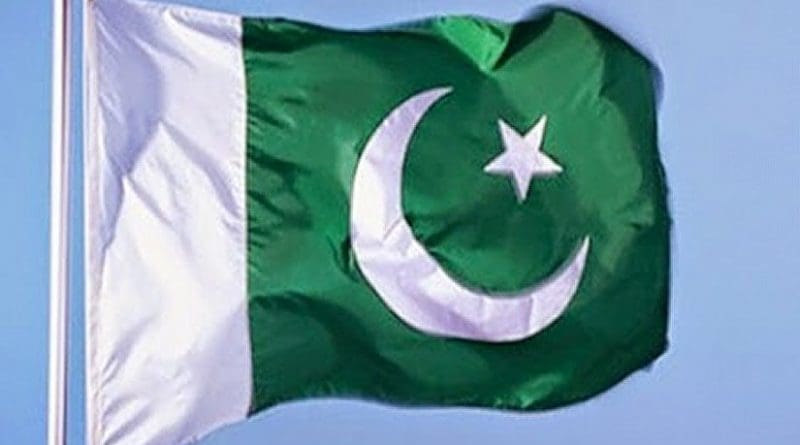NATO Strike In Pakistan: Need For A Joint Probe – OpEd
By IPCS
By Radha Vinod Raju
A pre-dawn airborne NATO attack on two Pakistani posts on the AF-PAK border resulted in the deaths of 24 Pakistani soldiers in the Mohmand Agency. This 26 November attack, unprovoked according to the Pakistanis, on the Golden and Volcano Pakistani posts has once again put a serious question mark on the US-Pakistan strategic relationship. The question is whether the NATO or American forces would go for such an attack in the present conditions, knowing that it could result in further deterioration of US-Pakistan relations, already on the brink. As expected, the reaction in Pakistan to the attacks and the resultant deaths of the 24 soldiers was on usual lines – strong statements from the Prime Minister, Mr. Yousuf Raza Gilani calling for review of the entire Pakistan-US relations, blockade of the non-lethal NATO supplies that pass through Pakistan and mostly sustain the US/NATO campaigns in Afghanistan, asking the US to vacate the Shamsi airbase in Balochistan from where it was mounting its Drone attacks and public reactions in the streets condemning the US and NATO.
Relations between Pakistan and the US had taken a turn for worse after the Abbotabad operation of 2 May this year in which US’ Seals, in two helicopters, swooped down to knock off Osama bin Laden, the world’s most wanted terrorist, with scant regard for the sovereignty of Pakistan. While Pakistan had played the injured party, the US had enough and more reasons for not taking its partner into confidence on this ultra-secret operation- many of its earlier warnings and information on the secret locations of wanted terrorists or their hide-outs had been leaked to the adversary. To make matters worse, President Obama had clarified later, while in London, that if the US were to get inputs about other high value targets in Pakistan, it will not hesitate to repeat the operation.
The elimination of Osama bin Laden presented the US with an opportunity to disentangle from the killing fields of Afghanistan, in which more than 1800 US soldiers had been martyred, and hundreds of billion dollars of the tax payers’ money, spent. In an economy that is facing unprecedented recession, with failing jobs and growing anxieties, President Obama was left with no choice but to down-size his deployments and gradually move out of Afghanistan. Pakistan had a vital role in this plan, with its hold on the Afghan Taliban, and its subsidiary – the Haqqani group, operating from Pakistan, as the Taliban had to be brought into any grouping among the various Afghan factions for a final settlement of the Afghan imbroglio. Thus, in spite of growing skepticism in the US among both Democrats and Republicans about Pakistan’s double role in taking assistance of billions of dollars and arms from the US to fight terrorists, while at the same time, encouraging the Taliban to hit US and NATO targets in Afghanistan, the State Department has been keen on maintaining relations with the Pakistan Government and its Armed Forces. The other major worry was the safety of the Pakistani nukes, and that they should not fall into the hands of the militants or their sympathizers.
Admiral Mike Mullen, former Chairman Joint Chiefs of Staff Committee, had earlier told the US Senate that Pakistan’s intelligence agency, ISI, was using the Haqqani network to wage a ‘proxy war’ in Afghanistan. According to him, the ISI has been doing this for a long period of time. Washington blames the Haqqani network, one of the most feared Taliban-linked groups fighting in Afghanistan, for the September, 2011, attack on the US embassy and other targets in Kabul. It is believed that Pakistan’s powerful ISI maintains ties to the network to guarantee itself a stake in any political settlement in Afghanistan when American troops withdraw. The US wants the Pakistanis to cut off links with the Haqqani network and the Army to start operations against them in North Waziristan.
With Presidential elections in the US slated for next year, it is keen to keep the time table of withdrawing bulk of its forces from Afghanistan by 2012. Its two-fold strategy of keeping pressure on the Taliban by its anti-insurgency operations on the one hand and continuing efforts to initiate talks with them on the other hand, appears to be sending conflicting signals. It was only a few days earlier that talks had been held between Pakistani Army officers and the ISAF who agreed on “measures concerning coordination, communication and procedures for enhancing border control on both sides.”
Under these circumstances, the question is whether the Americans would go for a cross border attack which could have grave consequences for their fragile alliance. According to NATO and Afghan sources, the air strikes had been called when their border posts came under fire from Pakistan’s side, though this is challenged by the Pakistanis. The real story can come out only after a transparent and fair joint investigation that will look into the reasons for the attack/counter attack which resulted in such a human tragedy. An independent joint mission is necessary around that fragile border.
It would do the Pakistanis a world of good to remember that, just 3 years back, an unprovoked attack by the LeT’s jihadists based in that country on Mumbai had left over a hundred and sixty dead, and property worth hundreds of crores was destroyed. Hundreds were injured and traumatized. Pakistan is yet to bring to justice the perpetrators of this dastardly attack, though several of them, including the Patron-in-Chief of the LeT, are strutting about in Lahore and Islamabad threatening to annihilate India.
Radha Vinod Raju
Distinguished Fellow, IPCS and Former Director General, National Investigation Agency (NIA)
email: [email protected]

